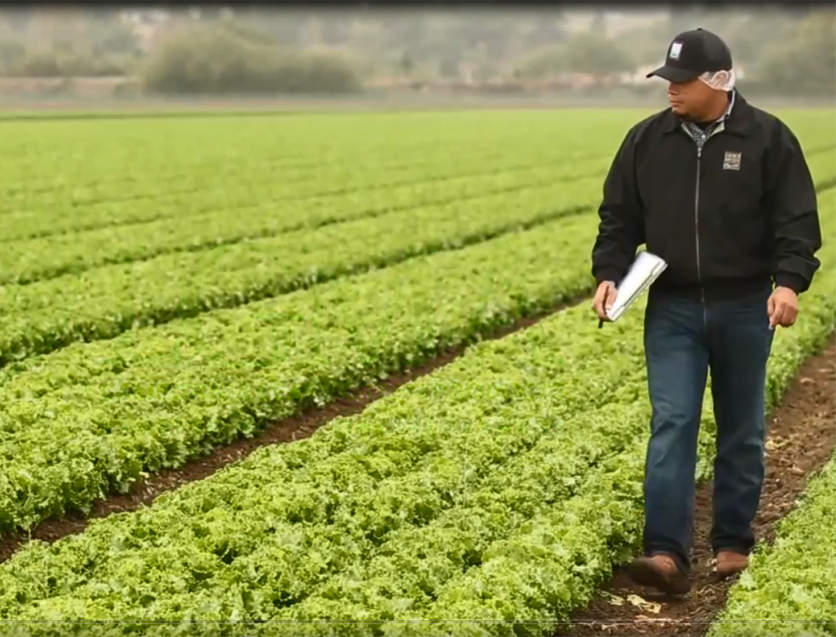In an effort to quickly identify and rapidly remove potentially contaminated food from the market, the Food and Drug Administration will require more recordkeeping by companies that make, process, pack or hold foods, including fresh leafy greens, nut butters, fresh-cut fruits and vegetables and ready-to-eat deli salads.
FDA's final traceability rule, released Tuesday, establishes additional recordkeeping requirements for foods on the Food Traceability List (FTL) or foods that contain them as as ingredients. The final rule is designed to implement Section 204 of the Food Safety Modernization Act,or FSMA.
FDA said the action is an “unprecedented advancement in foodborne illness prevention” to more effectively trace contaminated food throughout the food supply, but FMI-the Food Industry Association said the rule goes beyond FDA’s statutory authority.
The final rule requires companies that make, process, pack, or hold an FTL food to establish and maintain a traceability plan that, among other things, describes how they will maintain records under the new requirements, identify FTL foods they handle, and assign traceability lot codes to FTL foods.
"This rule lays the foundation for even greater end-to-end food traceability across the food system that we're working on as part of the New Era of Smarter Food Safety initiative," said Frank Yiannas, the FDA's deputy commissioner for food policy and response. "This standardized, data-driven approach to traceability recordkeeping helps create a harmonized, universal language of food traceability that will help pave the way for industry to adopt and leverage more digital, interoperable and tech-enabled traceability systems both in the near term and the future."
The FDA released a proposed rule in 2020 and held a public comment period that ended early last year. In response, the agency said it has made several changes to the final rule so that it better aligns with current industry approaches to food traceability and harmonizes points in the supply chain where records must be maintained.
FMI Chief Public Policy Officer Jennifer Hatcher said FMI will analyze the 597-page final rule on traceability to understand the range of its impact on its member companies. But FMI was critical of the final approach FDA took in implementation.
“Since the proposed rule was released, we have continually urged FDA to release a supplemental rule rather than moving straight to a final rule given the volume and complexity of changes commenters urged FDA to make," Hatcher said. "We believed a supplemental rule was a critical step to ensure that a final regulation is consistent with the statutory mandate and realistic in terms of the ability of companies of all sizes to comply."
Interested in more coverage and insights? Receive a free month of Agri-Pulse!
The final rule will require critical tracking events at specific points in the supply chain – such as harvesting, cooling, initial packing, receiving, transforming, and shipping FTL-listed foods.
The rule also requires a traceability plan with information essential to help regulators understand an entity's traceability program. These include a description of the procedures used to maintain required records, descriptions of procedures used to identify foods on the FTL, descriptions of how traceability lot codes are assigned, a point of contact for questions regarding the traceability plan and a farm map for those that grow or raise a food on the FTL.
Entities that grow or raise an FTL food (other than eggs) will also need to keep as part of their traceability plan a farm map showing the area in which the food is grown or raised, including geographic coordinates for the growing/raising area. Harvesters and coolers of raw agricultural commodities that are on the food traceability list must keep records of their activities and provide information on them to the initial packers of these raw agricultural commodities.
FDA’s final rule will also require maintenance of records as original paper or electronic records, or true copies; providing requested records to the FDA within 24 hours of a request (or within a reasonable time to which the FDA has agreed); and providing records in an electronic sortable spreadsheet when necessary to assist the FDA during an outbreak, recall or other threat to public health.
Hatcher said the food industry has been supportive of ensuring consumers have confidence in the food safety of its producers but said that based on a quick review of the rule, “implementation of the requirements ... will demand tremendous investments of time and resources across the entire food industry, and it looks like this rule significantly exceeds the statutory authority, both written and intended, by Congress.”
Hatcher added, “FMI and our members work every day to further strengthen the safety of our food supply and the continued rapid removal of any impacted products. This work needs to be done in the most efficient, consistent manner across all elements of the food supply chain with the least possible impact on food prices, greatest impact on results, and consistency with the intent of the law passed in 2011. Based on our quick review of this incredibly complex rule, it does not accomplish this.”
For more news, go to www.Agri-Pulse.com.


